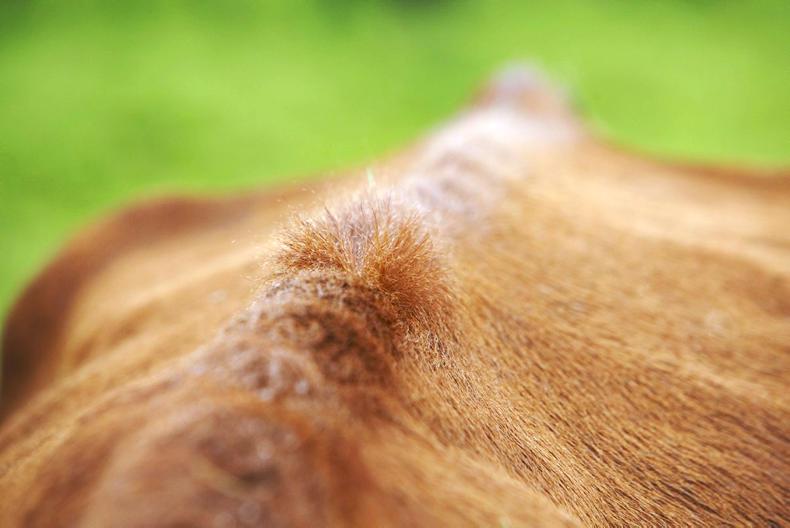Knackery owners nationwide have gone on strike over the high cost and lack of competition in the rendering sector.
Since Tuesday morning, no dead animals have been collected from farms and knackeries will not take in animals delivered to their yards.
Michael McKeever, chair of the Animal Collectors Association (ACA, told the Irish Farmers Journal that a lack of competition in the rendering sector, combined with a collapse in the hide trade and an increase in the seasonality of the business, is pushing many knackeries to the brink of going out of business.
Talks between the ACA and the Department of Agriculture about supports for the 38 licensed knackeries broke down on Monday.
Rendering and lack of competition in rendering is the biggest issue we have
While the Department of Agriculture said it has offered additional financial support to knackeries, the ACA said the talks had collapsed.
“All we want is a level playing field,” ACA chair Michael McKeever told the Irish Farmers Journal.
“Rendering and lack of competition in rendering is the biggest issue we have.”
Since 2013, carcases from animals over 48 months old cannot travel beyond a 125km radius of the knackery yard.
This has dramatically reduced the competition between the rendering plants that process the carcases.
Since the 125km rule was introduced, rendering charges have climbed from €50/t to an average of €90/t to €120/t this year.
There are only four rendering plants on the island of Ireland that are licensed to process Category 1 risk material: Dublin Products in Co Wicklow, Waterford Proteins in Co Waterford, College Proteins in Co Meath and Foyle Proteins in Co Derry.
Cheaper
Rendering costs are significantly cheaper in Foyle Proteins but, because of the 125km rule, only some knackeries are allowed to send carcases there for rendering.
At the moment, every animal we collect is costing us money
“For the last two years our members have been working at a loss,” McKeever said.
“At the moment, every animal we collect is costing us money.”
A spokesman for the Department said it is “willing to continue the discussion with the ACA at any time”.
Farmer view: ‘Another burden for farmers’
The IFA has called on the Department to move “immediately” to ensure farmers have a facility to dispose of their fallen animals.
Its animal health chair Pat Farrell said that the IFA fully supports some of the issues raised by knackeries, but the fallen animal collection and disposal system requires fundamental changes.
"The 125km distance limit on transporting offal to rendering plants has to be got rid of. It’s anti-competitive at the very least."
– Francie Gorman,
Co Laois
"It [the knackery strike] is another burden on farmers. As far as I’m aware, it is to do with the offal and the byproduct from knackeries and how far they have to travel with it. I don’t think it should be brought down for farmers to suffer again. They seem to be the one that takes the brunt of everything at the moment. I think the minister and powers that be should sort this out. Nobody wants to see a dead animal not collected. Farmers are under enough pressure.”
– Ken Jones, Co Kerry
“A strike in the knackeries is a very serious development, because if there are fallen animals around, there are all kinds of issues in relation to the disposal of them and we will be calling on the Department of Agriculture to take that into account if any issues arise in relation to fallen animals on various farms around the country. No farmer should be victimised because we haven’t caused this situation and we very much regret it.”
– Jim O’Connor,
Co Roscommon
Knackery owners nationwide have gone on strike over the high cost and lack of competition in the rendering sector.
Since Tuesday morning, no dead animals have been collected from farms and knackeries will not take in animals delivered to their yards.
Michael McKeever, chair of the Animal Collectors Association (ACA, told the Irish Farmers Journal that a lack of competition in the rendering sector, combined with a collapse in the hide trade and an increase in the seasonality of the business, is pushing many knackeries to the brink of going out of business.
Talks between the ACA and the Department of Agriculture about supports for the 38 licensed knackeries broke down on Monday.
Rendering and lack of competition in rendering is the biggest issue we have
While the Department of Agriculture said it has offered additional financial support to knackeries, the ACA said the talks had collapsed.
“All we want is a level playing field,” ACA chair Michael McKeever told the Irish Farmers Journal.
“Rendering and lack of competition in rendering is the biggest issue we have.”
Since 2013, carcases from animals over 48 months old cannot travel beyond a 125km radius of the knackery yard.
This has dramatically reduced the competition between the rendering plants that process the carcases.
Since the 125km rule was introduced, rendering charges have climbed from €50/t to an average of €90/t to €120/t this year.
There are only four rendering plants on the island of Ireland that are licensed to process Category 1 risk material: Dublin Products in Co Wicklow, Waterford Proteins in Co Waterford, College Proteins in Co Meath and Foyle Proteins in Co Derry.
Cheaper
Rendering costs are significantly cheaper in Foyle Proteins but, because of the 125km rule, only some knackeries are allowed to send carcases there for rendering.
At the moment, every animal we collect is costing us money
“For the last two years our members have been working at a loss,” McKeever said.
“At the moment, every animal we collect is costing us money.”
A spokesman for the Department said it is “willing to continue the discussion with the ACA at any time”.
Farmer view: ‘Another burden for farmers’
The IFA has called on the Department to move “immediately” to ensure farmers have a facility to dispose of their fallen animals.
Its animal health chair Pat Farrell said that the IFA fully supports some of the issues raised by knackeries, but the fallen animal collection and disposal system requires fundamental changes.
"The 125km distance limit on transporting offal to rendering plants has to be got rid of. It’s anti-competitive at the very least."
– Francie Gorman,
Co Laois
"It [the knackery strike] is another burden on farmers. As far as I’m aware, it is to do with the offal and the byproduct from knackeries and how far they have to travel with it. I don’t think it should be brought down for farmers to suffer again. They seem to be the one that takes the brunt of everything at the moment. I think the minister and powers that be should sort this out. Nobody wants to see a dead animal not collected. Farmers are under enough pressure.”
– Ken Jones, Co Kerry
“A strike in the knackeries is a very serious development, because if there are fallen animals around, there are all kinds of issues in relation to the disposal of them and we will be calling on the Department of Agriculture to take that into account if any issues arise in relation to fallen animals on various farms around the country. No farmer should be victimised because we haven’t caused this situation and we very much regret it.”
– Jim O’Connor,
Co Roscommon






 This is a subscriber-only article
This is a subscriber-only article










SHARING OPTIONS: